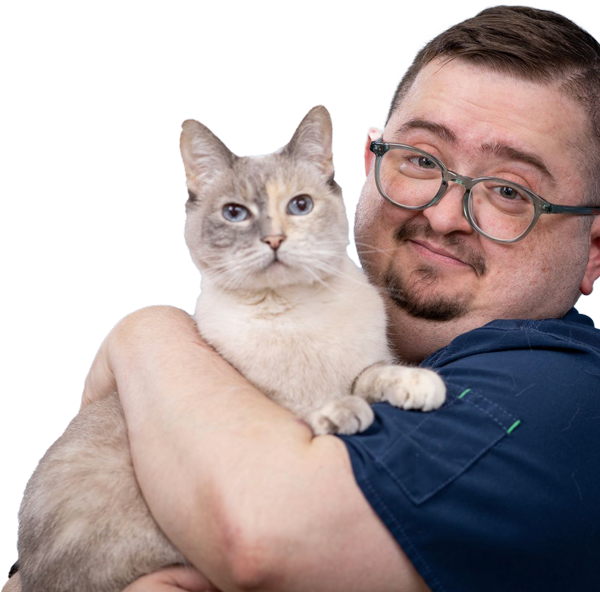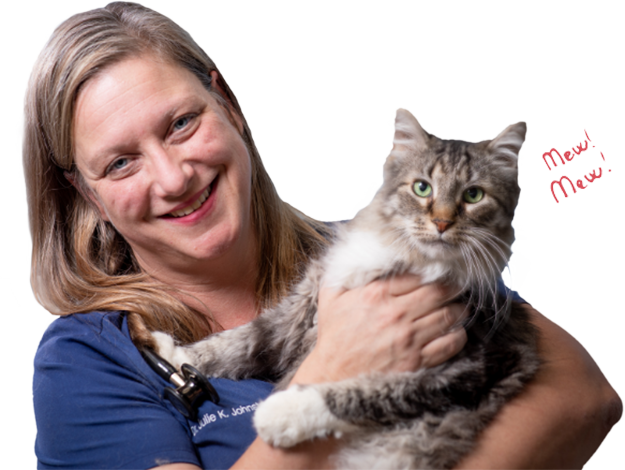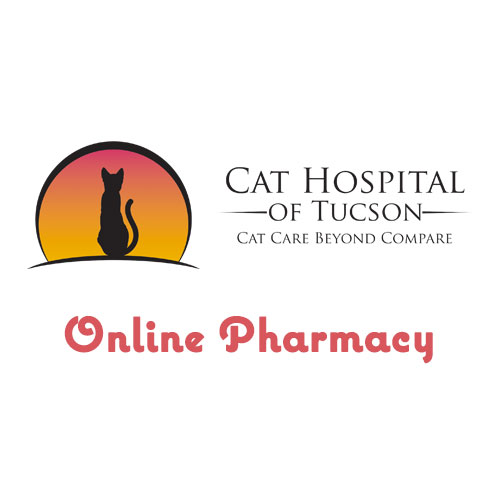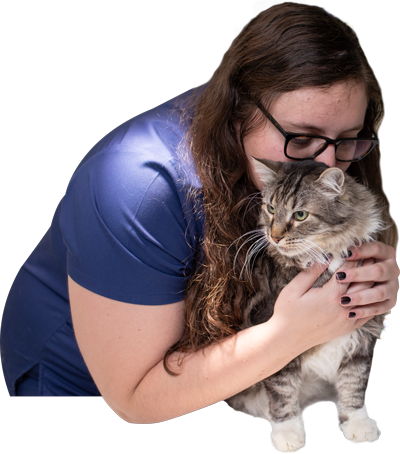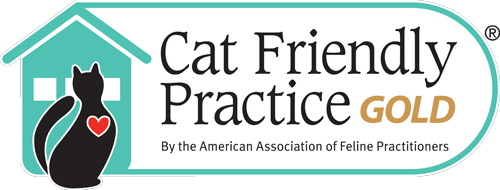Senior & Geriatric Medicine
Old Age is not a disease.
Many complex physical changes accompany aging; but age, in and of itself, is not a disease. Older cats tend to be less active and playful, they may sleep more, have behavior changes, gain or lose weight, and have trouble reaching their favorite places. Don’t blame these changes – often gradual – on old age, however. Such changes can be signs of common diseases of elderly cats. Even with these chronic diseases, if well managed, your cat can enjoy active healthy senior years.
Chronic Pain Ages Cats Faster
Many of the signs of “old age” are related to chronic pain. Research demonstrates 95% or more of cats 15 years and older have osteoarthritis pain. 90% of cats older than 12 years of age show radiographic (x-ray) evidence of osteoarthritis.
A thorough orthopedic exam every 6 months on your senior cat allows us to identify pain early, intervene to slow its progression and make your kitty feel better.
Detecting Disease
Other signs may be evidence of underlying illness. The most common early signs something may be wrong with your cat is inappetence and changes in behavior. Routine laboratory work allows us to rule out and detect common diseases. Some diseases require additional diagnostics.
Twice yearly veterinary visits with a thorough exam and lab work is the key to giving your cat many healthy, happy golden years.
Common Senior Concerns
Common Senior Problems
- Behavior Changes
- Inappetence
- Weight Loss
- Vomiting
- Diarrhea
- Chronic Coughing/Congestion
- Litter Box Issues
- Decreased Grooming
- Difficulty walking, climbing stairs, jumping…
- Vision Loss
Common Senior
Diseases
- Osteoarthritis
- Dental Disease
- Chronic Kidney Disease
- Hyperthyroidism
- Hypertension
- Diabetes Mellitus
- Pancreatitis
- Inflammatory Bowel Disease
- Heart Disease
- Cancer
Prevention, early disease detection and treatment, and reduction of underlying health risks (nutrition, environment, obesity…), is critical to giving your senior cat the healthiest quality life possible.
Your cat’s medical plan and chronic disease monitoring, will be tailored to the specific needs of your aging cat.

